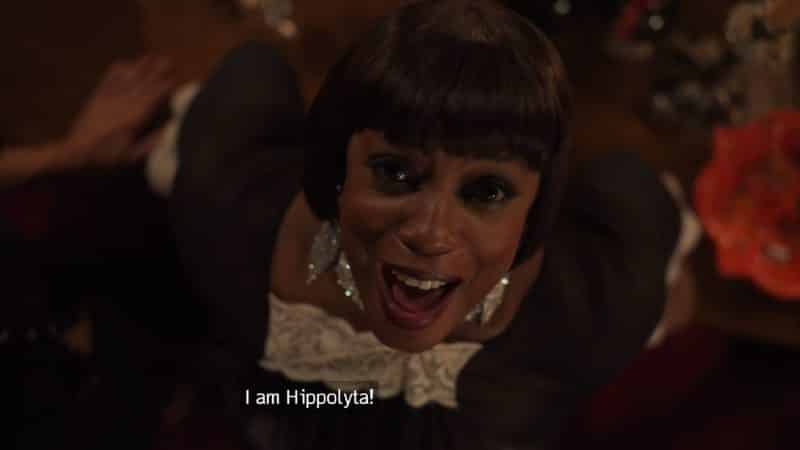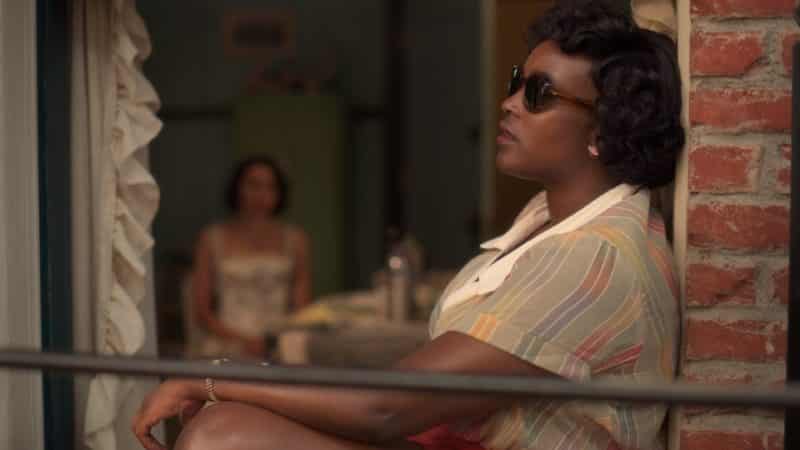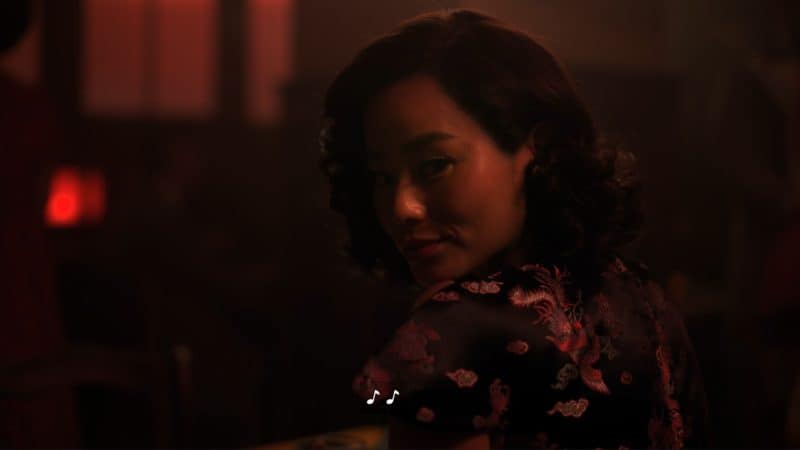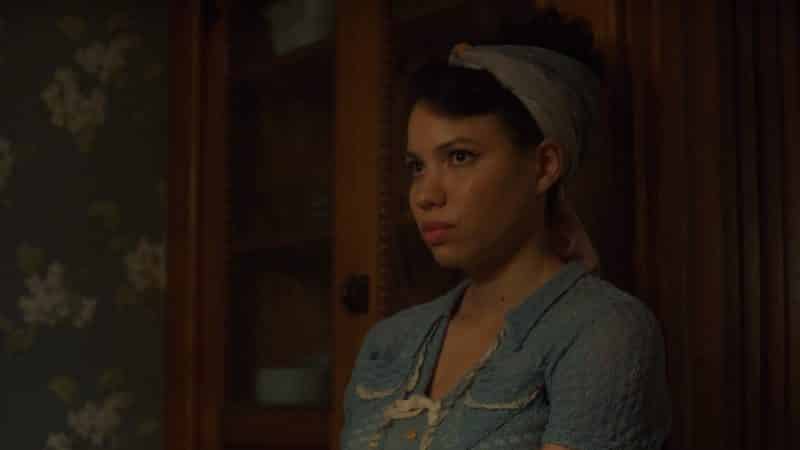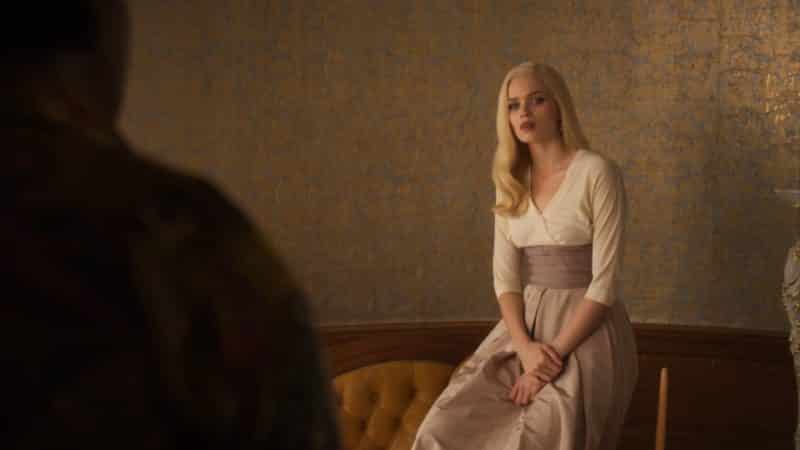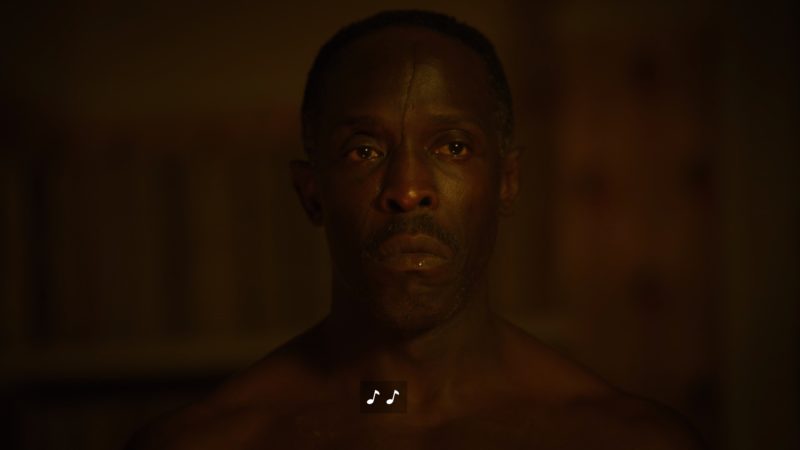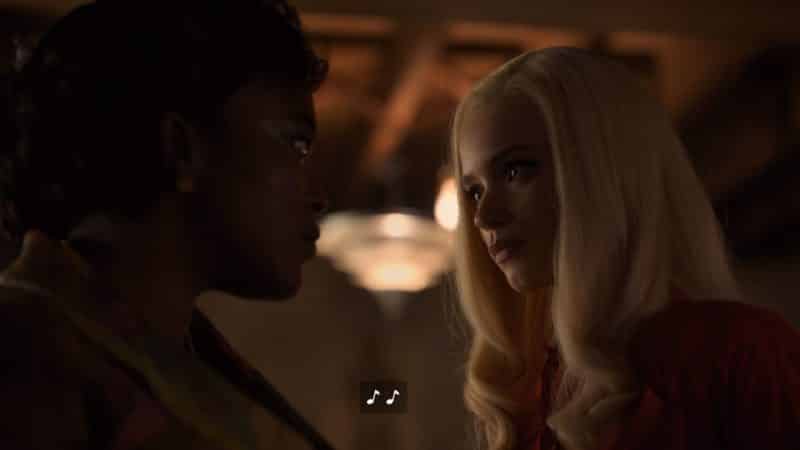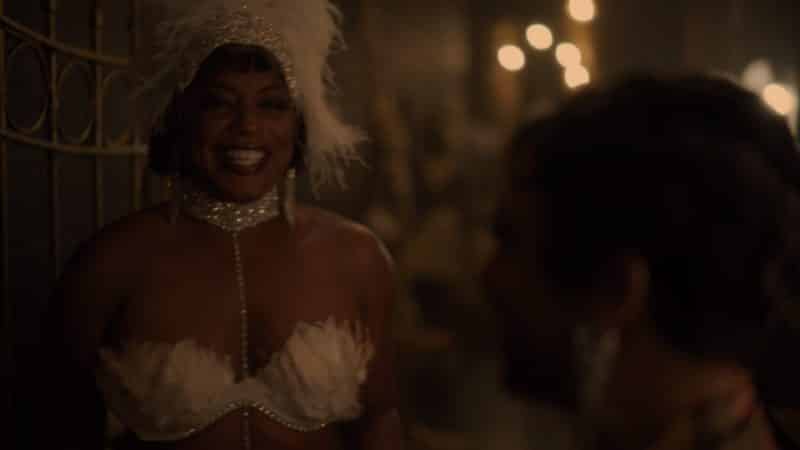Lovecraft Country: Season 1 – Recap/ Review (with Spoilers)
“Lovecraft Country” continues the burgeoning tradition of, within the fantasy/horror genre, embedding Black stories to bring America’s shameful history back to life.
![Title Card - Lovecraft Country Season 1 Episode 1 Sundown [Series Premiere]](https://wherever-i-look.com/wp-content/uploads/2020/08/Title-Card-Lovecraft-Country-Season-1-Episode-1-Sundown-Series-Premiere-scaled.jpg)
Spoiler Alert: This summary and review contains spoilers.
Additionally, some images and text may include affiliate links, meaning we may earn a commission or receive products if you make a purchase.
“Lovecraft Country” continues the burgeoning tradition of, within the fantasy/horror genre, embedding Black stories to bring America’s shameful history back to life.
| Network | HBO |
| Creator(s) | Misha Green |
| Aired | 8/16/2020 – 10/18/2020 |
| Genre(s) | Action, Adventure, Fantasy, Horror, Mystery, Romance, Thriller, LGBT |
| Noted Cast | |
| Atticus | Jonathan Majors |
| Montrose | Michael Kenneth Williams |
| Dora | Erica Tazel |
| Leti | Jurnee Smollett |
| George | Courtney B. Vance |
| Hippolyta | Aunjanue Ellis |
| Ruby | Wunmi Mosaku |
| Christina | Abbey Lee |
| Ji-ah | Jamie Chung |
| Tamara | Sibongile Mlambo |
| Josephine Baker | Carra Patterson |
| Sammy | Jon Hudson Odom |
| Yahima | Monique Candelaria |
This content contains pertinent spoilers.
Season Summary
Atticus Freeman, not too long separated from the Korean war, finds himself returning home to check up on his estranged father, Montrose, who learns has disappeared. However, the truth is that his father was kidnapped while discovering more about Atticus’ mother, Dora’s, lineage. But, with the help of a childhood friend, Leti, and his uncle George, Atticus not only goes to find his father but stumbles into a grand magic society. One which doesn’t take too kindly to his presence or the abilities he may have.
Review
Highlights
It’s So Black
While there are shows that focus on modern Black culture, there aren’t too many that delve into the past and depict how we got here. So with “Lovecraft Country” talking about Emmett Till, the experimentation on Black bodies, Tulsa, the real green book, and showing us Black fashion, giving us Black music, afro-futurism, and so much more, it covers more bases than most shows do in an entire series. All the while, with very few exceptions, respecting each subject matter.
Together, it pushes “Lovecraft Country” to be more than a show that just so happens to focus on Black people and keenly represents the Black experience during a period, with the hook for outsiders being magic, monsters, and the familiar name of “Lovecraft.”
Women Have Their Own Lives & Stories
But the real kicker with this show might be, despite it starring a Black man, it doesn’t mean, like in many stories focused on Black men, Black women play a limited role. Rather, beyond mothers and girlfriends, they kick ass, take names, solve issues, make sacrifices, and have their own individual journeys. As noted further below, Hippolyta, a woman whose name barely registers when shrunk to just being George’s wife, has an entire episode dedicated to her, which forces you, makes you, want to know how to spell and pronounce her name.
Leti too, while mostly playing the role of Atticus’ friend (did they ever officially become boyfriend and girlfriend?) has an entirely separate journey through her sister. Someone who, as a dark-skinned, thick, Black woman, stands in contrast to Leti. Someone who is given a whole life outside of Atticus, and Ruby, which had her arrested, protesting, and the family’s black sheep. One still loved, but certainly not easy to love.
And getting back to Ruby, she, like Hippolyta, may not have been on your radar at first, but then their individual episode hits, and you are left ashamed for not recognizing their abilities. Yet, that is one of the major talents of Green and her team – they choose those who are talented, yet often overlooked, and forced you to recognize what you’ve been missing on due to either your own biases or misuse by past writers and/or directors.
Christina Was The Perfect Villain
We never saw Christina as a villain for most of the season, yet in the end, you get it. Christina, a blonde hair, blue-eyed white woman, represents so many white women of the world. Ones who, because they feel oppressed, they think the cruel treatment they receive is adjacent to that of Black and Brown people. So, in some ways, there is a desire for allyship.
Yet, as the season finale proves, while capable of comradery, the end result is just the same. As with Black men, their goal is to obtain and surpass the lofty privilege white men have and when in reach of such, they’ll sacrifice any and all alliances to get themselves ahead. Without any care for even their closest allies who may have crossed the threshold of their homes and have even entered their hearts.
The Character Specific Episodes
I don’t think anyone could or would downplay how powerful Hippolyta’s, Ruby’s, Ji-ah’s, or even Montrose’s focused episodes were. Hippolyta’s especially since her journey through time and space took actress Aunjanue Ellis to places you don’t expect to see Black women in their 50s go. For as immortalized by the words of Viola Davis, the main problem for Black women, and women of color, in extension, is a lack of opportunity.
Yet, to follow that up, I would say it isn’t just opportunity in general, but the kind of opportunities that push the proverbial door more open and dispels the need for the previous person to hold it. And with Hippolyta’s episode, you see a clear Emmy, NAACP, you name it, nomination episode as Hippolyta is pushed to rediscover who she is through Josephine Baker, engaging with the past of her ancestors, and finding a future in which she can flourish.
But she isn’t alone in having a momentous solo episode. Ruby’s, which has her transforming and breaking through the façade of a white woman is equally powerful in its messaging. Especially for Black people who know too well about the need to code-switch, become palatable to white co-workers, and make yourself into something you’re not since you have been led to believe that is the sole way to get ahead. Only to discover, later on, while gatekeepers will use your race against you, sometimes the only thing holding you back are all the obstacles you think you have to surmount to get to where you wanna be. Hence the introduction of the uneducated Tamara, who got the job Ruby has longed for.
Bringing in Ji-ah, there has always been a desire to see more productions that have a budget, take on what American imperialism did to other countries. To not paint the propaganda we’re so used to of fighting for and spreading democracy but get the honesty as children and adults, it seems we’re not trusted with. And in exploring Ji-ah’s story, we’re reminded how the way “Lovecraft Country” presented Black stories can be translated for other cultures.
Leaving Montrose. The reason he is the sole male mentioned is that his queer storyline, which peaks in episode 9, was spread out from the start rather than a direct, open your eyes, and be forced to see this person’s brilliance, kind of experience. Yet, that doesn’t take away from episode 5 featuring Montrose confirm his relationship with Sammy with us or episode 9 helping us understand how, back when he was a child, he had feelings for boys, but trauma in so many directions kept him in the closet. Be it the fear of his father with a weapon, society that, just on a rumor, would commit someone to a psychiatric hospital, or the guns people wave at those who are considered “f****ts” and yet another reason for him to fear for his life, beyond being a Black male.
Together, these episodes are what made “Lovecraft Country” far more than any monster and, in the case of Ruby and Hippolyta, made the magic mean so much more than Leti or Atticus’ adventures ever did.
Christina and Ruby As A Couple
While Atticus has two notable relationships, one with Leti and another with Ji-ah, and there are Hippolyta and George, as well as Sammy and Montrose, the one you may find yourself shipping the most is Ruby and Christina. Why? Well, it’s because there is actually something passionate and romantic there – consistently. With Atticus, his relationship with Leti feels entirely one-sided in his favor, and when you see all he has done for Ji-ah, Leti getting Atticus to show up seems minimal and insulting.
And even when it comes to Atticus’ relationship with Ji-ah, considering it was built on her wanting revenge for him murdering a friend of hers, and then him running away and denying her for years? It’s so tainted. Then with Sammy and Montrose, as much as you want to love them, it is clear, even after episode 5, they still have a long way to go. If not, Montrose does to remove the shackles and chains he and his father placed on him.
Then with George and Hippolyta, as noted in her episode, she shrunk herself for George, and he not only let her but encouraged her to do so by not providing the opportunity and means to be herself. Leaving Christina and Ruby, whose relationship did begin strangely, but they became the most endearing couple by watching them challenge and support one another.
I mean, take the twisted way Christina tested her invulnerability by having herself die the way Emmett Till did. You could see that as having a white woman experience it to show how brutal Till’s death was, but there is also Christina, after being told off by Ruby, trying to understand her feeling by experiencing the murder which has her up in arms. All in an effort to better understand the person she loved and who wasn’t just an ally for convenience but someone who worked their way into her heart.
Low Points
Magic Is A Means To An End
Magic, monsters, the whole fantasy element of the show, it might be necessary to allow some stories to come to life, like Hippolyta’s and Ruby’s, but it essentially is an initial hook that fades in use as time goes on. In fact, I’d submit that the more adventures and complications Atticus’ journey gives to magic, the less interest it brings to the show. This is why Hippolyta’s episode is so important for beyond bringing her to the forefront, it gave you a reason to see the magic Atticus seeks, and Christina wields as important.
Which, to be fair, Ruby’s episode, episode 5, warms you up for. However, with Ji-ah’s sandwiched in between, Hippolyta’s episode, episode 7 (!) is when magic truly becomes more than a catalyst.
On The Fence
Yahima
In episode 4, we’re introduced to a two-spirit indigenous person named Yahima, and with their inclusion, you can see the first signs of “Lovecraft Country,” seeking to tell stories beyond those of its Black characters. Yet, after having Yahima expose themselves, speak native tongue, and seem like a new member of the team, they are violently killed by Montrose.
The issue with this is that indigenous people make such a small part of the media landscape that Yahima could have been something. Add on them being two-spirit, which doesn’t mean trans (!), but it would be understandable for you to make that correlation, it could have furthered the conversation in regards to the cultures Yahima possessed. Yet, like so many who don’t fit America’s gender norm, Yahima was violently killed and discarded due to a man’s own shame, though he verbally notes it was also to keep Atticus from diving deeper into Christina and The Order’s magic.
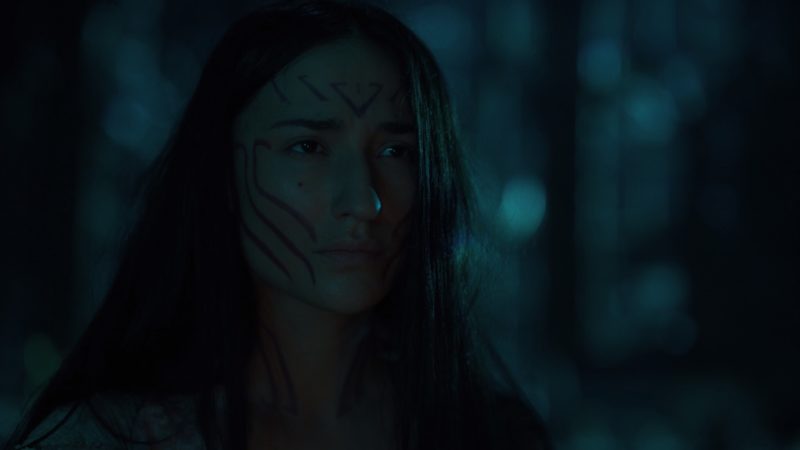
And perhaps the real kicker here isn’t just the fact Yahima was killed, but how the show moved on as if killing them off was because, narrative-wise, Yahima didn’t work, so getting rid of the character was the best they could do.
Overall
Rating: Positive (Watch This) – Recommended
As a Black person, “Lovecraft Country” gives you what has long been promised by Hollywood. It features diversity beyond skin tone but by age, gender, body types, and sexuality. Also, it makes nearly every character valuable and gives them a chance in the sun, so if someone is introduced to an actor in this movie, the likelihood this will be all they are known for is slim. Add in telling Black specific stories and being unapologetic about America’s crimes against humanity, and it makes “Lovecraft Country” as much a clear beginning of a new chapter as a reminder that, to get to this point, the horrors of being Black in America was needed for shows like this to exist.
Yet, even with sometimes feeling uneasy about Black trauma being commercialized, how else would stories like Emmett Till get renewed interest? Tulsa to be a starting point to other domestic destruction that was either orchestrated by the US government or allowed to happen thanks to the US Government?
To summarize, “Lovecraft Country” is almost a necessary evil. Yet, from the blood, tears, and trauma of the past, we see stories come back to life thanks to the families who survived and transformed those stories into calls to action. If not a means to remind the world how far so many could have come if they’d only allowed themselves to see a person’s humanity.
Hence the positive rating and recommendation. While “Lovecraft Country” sometimes may feel like it goes to extremes to make its point, considering others went to extremes to make their opinions into agreed-upon facts, it did what had to be done. For in bringing the dead back to life, it created a wake-up call for the living. All by reminding us of Black women’s plight as they try to find their place in society and making it so no culture or perspective was forced to assimilate. Rather, they are given room to express their point of view and bring themselves to the journey. Which ultimately presents a path forward to what true diversity can and should be.
Where To Watch
TV Shows We’re Covering This Season
Images used for editorial and commentary purposes. All rights remain with their respective copyright holders.

